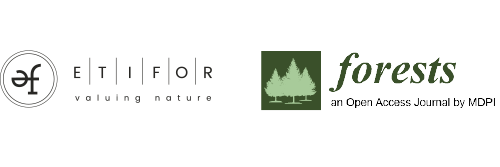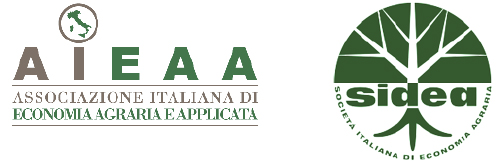
Conference
The IUFRO and University of Padova international conference 2020 will be combined with the conference organised by EURAC from 6th to 9th of October in Bolzano, the topic of the international conference is: the social and ecological value added of small-scale forestry to the Bio-Economy
Bioeconomy “encompasses the production of renewable biological resources and their conversion into food, feed, bio-based products and bioenergy” (EC, 2012). It includes forestry and wood production, with the related biotechnological, chemical and energy industries, but also the provision of other ecosystem services that can support sustainable economic growth. “Bio-refineries are increasingly at the core of the Bio-Economy vision at the EU level and worldwide” (World Bio-Economy Summit, 2015). Large private and public investments actors are mainly focused on capital-intensive investments based on low cost biomass in vertically integrated value chains, where the perspective of the social or ecological value added often lacks behind. As counterpart to this mainstream economic trend, we intend to focus our interests towards small-scale labor-intensive activities in the bio-economy context, inclusive the non-wood products and cultural services, as they seem to have a minor role in the discussions of scientists and decision makers.
In the IUFRO Conference we thus want to put our focus on interpreting and promoting the impact of forest bio-economy on the development of quality product markets and nature-based services and the concepts behind them: social innovation, product diversification, multifunctionality and the value added network of vertically and horizontally integrated economic stakeholders. The extension of the economic paradigm towards social and ecological value added, leads us to the need for considering the associated trade-offs or opportunity costs. But the challenges of climate and socio-demographic changes, coupled with complex and dynamically changing political and socio-economic situations underpin the relevancy to transform our business thinking. Porter and Kramer’s (2011) shared value approach may support this mental shift.
For the conference, we are looking for research proposals, project results and conceptual approaches that demonstrate how to support such enlarged interpretation and the development of forest Bio-Economy, inclusive the various facets of social, ecological and economic added values and their trade-offs, generated by multifunctional managed forests and the downstream industries purchasing, processing and selling timber and NWFPs.
The conference is organised in cooperation with the IUFRO division 4.05 and the IUFRO Task Force: unlocking the bioeconomy and non-timber forest products.
Topics
Our speeches
Our team contributed to the production of following abstracts presented during the conference:
October 7th
- During the 2nd Session, at 12:15
Life Brenta 2030 Project ‐ Promoting good governance and innovative financing schemes for biodiversity and water conservation of Brenta river by Carlo Zanetti , Mauro Masiero, Alessandro Leonardi. The presentation will deepen some topics of LIFE Brenta 2030 project promoted by Etifor. Find out more on the biggest initiative ever realized to enhance the area of the middle course of the river Brenta! - During the 3rd session, at 17:00
How national forest funds can support small‐scale forest businesses to deliver ecosystem services? by Ludwig Liagre , Alex Pra, Davide Matteo Pettenella
October 8th
- During the 5th Session, at 9:45
From an informal to a legal wild forest product economy: the Italian experience on new fiscal regulations by Jacopo Giacomoni , Davide Matteo Pettenella. The presentation will deepen some topics of INCEDIBLE project realised in partnership with Etifor. INCREDIBLE project aims to enhance the importance of NWFPs and build a mass of knowledge through transversal and multidisciplinary approaches. - During the 7th Session, at 12:15
New development of Italian forest owner associations: towards a better integration of SME in the forest‐based bioeconomy by Giorgia Bottaro , Nicola Andrighetto. The presentation will deepen some topics of CAREGA, a project realised in partnership with Etifor. CAREGA aims to optimize the forest-wood supply chain in the Veneto region, in the north-east of Italy. - During the 9th Session, at 16:45
The effects and impacts of the Vaia storm on local timber markets in Northeast Italy by Alberto Udali , Nicola Andrighetto, Stefano Grigolato, Paola Gatto. The presentation will deepen some topics of IT-FOR project realised in partnership with Etifor. Find out more about IT-FOR operating group that has the ambition to lay the foundations to strengthen the entrepreneurial capacity of companies in the forest-wood and forest-energy supply chain.
Organized by
IUFRO 4.05.00 – Managerial economics and accounting,
IUFRO Task Force Unlocking the Bioeconomy and Non-Timber Forest Products (tbc)
Media Partner

Sponsor
Language:
The official language of the symposium is English.



